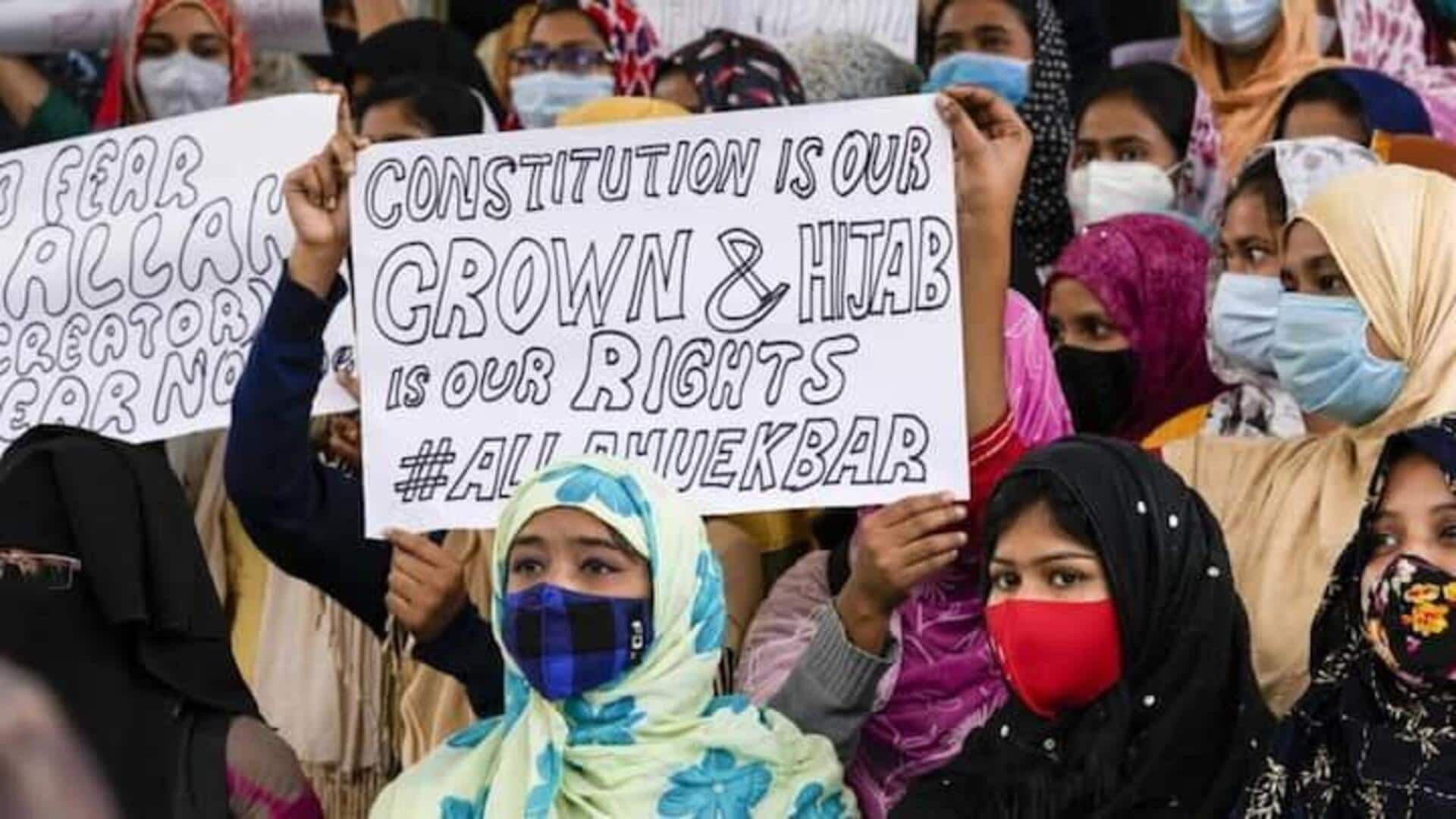
'Only hijab ban, not bindi, tilak?' SC slams Mumbai college
What's the story
The Supreme Court has criticized a Mumbai college for its ban on students wearing burqa, hijab, or niqab on campus and partly stayed the notice issued by the institution regarding this ban.
A bench of Justices Sanjiv Khanna and PV Sanjay Kumar passed the interim order while hearing a petition filed by Muslim women students of NG Acharya & DK Marathe College in Mumbai.
The petitioners approached the SC after the Bombay High Court upheld the ban.
Court remarks
'How are you empowering women: Court
The apex court questioned the rationale behind the college's decision, stating that students should be allowed to wear what they want.
Justice Kumar expressed concern over how such a decision could work against empowering women.
He asked, "How are you empowering women by telling them what to wear? Where is the choice for the woman?"
"Will you say that somebody wearing tilak will not be allowed?" he asked senior Advocate Madhavi Divan, who was representing the college.
Arguments
College's ban creates barrier, argued its representative
Senior advocate Colin Gonsalves, representing the petitioners, argued that students were barred from attending classes and denied attendance due to their adherence to wearing hijabs.
In response, advocate Divan stated that there are 441 Muslim girl students at the college, but only three of them wanted to wear hijabs.
She justified the ban by stating that a girl's niqab or headscarf creates a barrier.
Court's response
'Religion also revealed in names,' says Justice Khanna
However, Justice Khanna disagreed with Divan's argument and stated that religion is also revealed in names and such rules should not be imposed.
"Will their names not reveal religion? Will you ask them to be identified by numbers? "Let them study together," Justice Kumar replied.
Justice Kumar also stated that such rule-making by colleges must stop.
Background
9 students had moved HC against college's notice
The issue arose after nine students of NG Acharya and DK Marathe College at Chembur moved the High Court against a notice from the college instructing them to follow a new dress code from the new academic year beginning in June.
The high court dismissed the plea, observing that the directive aimed to prevent the disclosure of a student's religion, allowing them to focus solely on their education.
Aggrieved, the students approached the apex court.